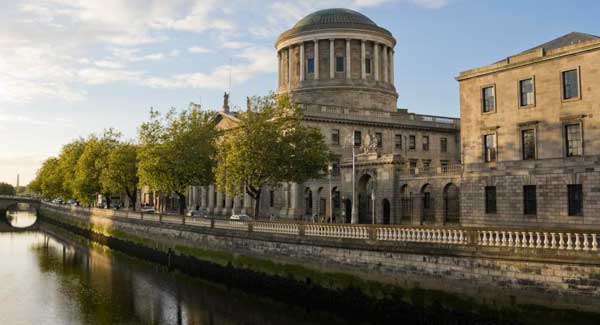The Special Criminal Court has ruled that evidence from 11 members of the Garda National Surveillance Unit in the retrial of two men accused of the murder of dissident republican Peter Butterly almost four years ago should be given anonymously and with the public excluded from court.
The court has been told that the car used by the gunman was being watched by members of the National Surveillance Unit and that a protected witness would give evidence against two men accused of the murder of dissident republican Peter Butterly almost four years ago.

Edward McGrath (aged 35), of Land Dale Lawns, Springfield, Tallaght, Dublin and Sharif Kelly (aged 46), of Pinewood Green Road, Balbriggan have pleaded not guilty to the murder of the 35-year-old father of three.
Peter Butterly was shot dead in the car park of the Huntsman Inn, Gormanston, Co Meath around 2pm on March 6, 2013.
Mr McGrath also denied the unlawful possession of a Beretta pistol and seven rounds of ammunition and having the gun and ammunition with intent to endanger life on the same date.
The court was told that a third accused, Dean Evans (aged 24), of Grange Park Rise, Raheny, Dublin, who failed to turn up for the trial, had not been located by the gardaí.
The court decided to proceed with the trial of Mr Kelly and Mr McGrath in Evans’s absence.
It is the second trial of Mr McGrath and Mr Kelly. The original trial collapsed in January, 2015 and a 55-day trial and a retrial was ordered.
Prosecuting counsel Mr Alex Owens SC said that David Cullen, who was a protected witness, would give evidence that he was told by the accused Kelly to collect the gun at Gormanston College and hide it. Cullen would say that Kelly’s role was to pick up Mc Grath and Evans “after the deed had been done”.
Counsel said that Cullen had been sentenced to seven years imprisonment with three and a half years suspended after he pleaded guilty in July, 2014 to firearms charges.
Mr Justice Tony Hunt, presiding, said that the court accepted the evidence of Detective Superintendent William Johnson, the officer in charge of the National Surveillance Unit, that the unit was a “very particular unit with very particular functions”.
The judge said that the surveillance of alleged paramilitaries was potentially “a very dangerous aspect of policing” and the court was satisfied that the public should be excluded when the eleven witnesses from the NSU were giving evidence.
The court also ruled that while the identities of the witnesses would be furnished to the court and to the defence, they should give their evidence under initials.
The court is hearing submissions on a prosecution claim of privilege in relation to the circumstances of protected witness David Cullen.
The trial before Mr Justice Tony Hunt, presiding, sitting with Judge John O’ Hagan and Judge Anne Ryan, is continuing.


